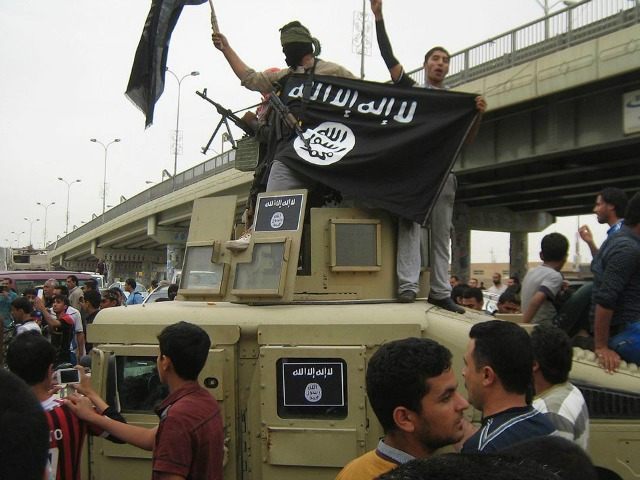The Islamic State (ISIS/ISIL) could weaponize “highly dangerous” radioactive material still considered missing after it was stolen last year from a storage facility in Iraq, Reuters exclusively reports.
This revelation comes after U.S. Director of National Intelligence James Clapper confirmed ISIS has used chemical weapons in the past.
Moreover, the jihadist group has shown interest in smuggling weapons of mass destruction (WMD) into United States across the Mexican border by exploiting existing trafficking networks in Latin America.
“Iraq is searching for ‘highly dangerous’ radioactive material whose theft last year has raised fears among Iraqi officials that it could be used as a weapon if acquired by Islamic State,” declares Reuters.
Citing a November 30 Iraq Environment Ministry document addressed to the Ministry’s Centre for Prevention of Radiation, Reuters revealed a radioactive source of Ir-192 with highly radioactive activity, which belonged to the Istanbul-based SGS Turkey, was stolen from a facility owned by U.S. oilfield services company Weatherford, located in southern Iraq’s Basra province.
Iraqi officials have expressed concern that, in the wrong hands, the radioactive source of Ir-192 could be used to make a dirty bomb or to generate radioactive population of “catastrophic proportions.”
An unnamed senior security official based in Baghdad with knowledge of the theft told Reuters, “We are afraid the radioactive element will fall into the hands of Daesh,” using an Arabic acronym for the Islamic State.
“They could simply attach it to explosives to make a dirty bomb,” added the official, who works at the Iraqi Interior Ministry and spoke on condition of anonymity, as he is also not authorized to speak publicly.
Although the U.S. State Department reportedly admitted that it was aware of the theft of the radioactive material, it added that it has seen no evidence that ISIS or other militant groups have acquired it.
However, the spokesman declined to comment on whether the missing material could be used in a dirty bomb.
“Besides the risk of a dirty bomb, the radioactive material could cause harm simply by being left exposed in a public place for several days,” David Albright, a physicist and president of the Washington-based Institute for Science and International Security, told Reuters.
“If they left it in some crowded place, that would be more of the risk, if they kept it together but without shielding,” he said. “Certainly it’s not insignificant. You could cause some panic with this. They would want to get this back.”
The November 30 document warned that the theft of the “highly dangerous radioactive material” posed a national security threat.
“Large quantities of Ir-192 have gone missing before in the United States, Britain and other countries, stoking fears among security officials that it could be used to make a dirty bomb,” notes Reuters. “A dirty bomb combines nuclear material with conventional explosives to contaminate an area with radiation, in contrast to a nuclear weapon, which uses nuclear fission to trigger a vastly more powerful blast.”
A Basra-based senior environment ministry official told Reuters that the stolen device contained up to ten grams (0.35 ounces) of a radioactive isotope of iridium, known as Ir-92 “capsules,” which is also used to treat cancer.
On Wednesday, the International Atomic Energy Agency (IAEA) reportedly indicated that Iraq made it aware of the theft in November, noting that Baghdad has not requested assistance to recover the radioactive material.
“The IAEA said the material is classed as a Category 2 radioactive source, meaning that if not managed properly it could cause permanent injury to a person in close proximity to it for minutes or hours, and could be fatal to someone exposed for a period of hours to days,” reports Reuters.
“How harmful exposure can be is determined by a number of factors such as the material’s strength and age, which Reuters could not immediately determine,” notes the report.
In a statement, Weatherford wiped its hands clean of any responsibility or liability of the theft of the “highly dangerous” material, saying, “We do not own, operate or control sources or the bunker where the sources are stored.”
Citing instructions from the Iraqi security authorities, the Iraqi security firm Taiz, which was contracted to protect the storage facility, declined to comment, notes Reuters.
There were no immediate suspects for the theft, the Baghdad-based security official told Reuters, adding that an initial inquiry suggested that the suspects had specific inside knowledge of the material and facility, given that there was “no evidence of forced entry.”
Army, police, and intelligence forces were working “day and night” to locate the material, a spokesman for the operations command responsible for security in Basra province told Reuters.

COMMENTS
Please let us know if you're having issues with commenting.